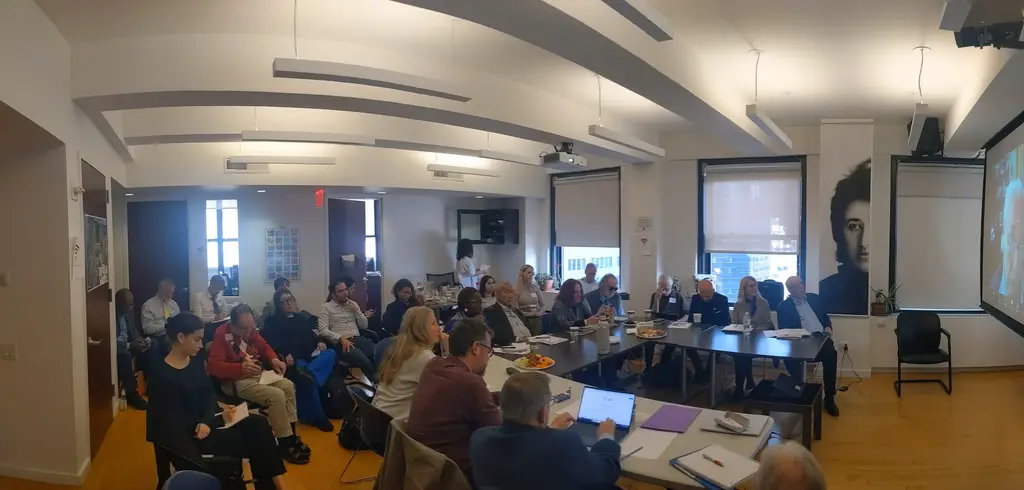by Dr. Danning Wang, Founder and Board Chair, Belt and Road of Culture Exchange Foundation for Women. Hong Kong, China.
November 27, 2023
Thanks Dr. Joseph Gerson’s invitation for giving me this precious opportunity to present the Chinese perspectives on the world’s geopolitical changes and their implications for nuclear weapon policies. During the past eight years, it is my great honor to be included in the Korean Peninsula peacebuilding process. Therefore, my presentation will be based on my working experience and observations of the various sides’ reactions and their implications from the China’s perspective.
What kinds of geopolitical changes that we are facing today?
To answer this question, I will focus on three geographic locations to make my points.
First, what had happened in the Korean Peninsula during the past several days? On Nov. 21st, President Yoon of ROK visited Great Britain. He was warmly welcomed by the royal family and the Prime Minister of UK. The relationship between ROK and UK was upgraded to the comprehensive strategic partnership. However, on the same day, DPRK successfully launched its detective satellite and upgraded its military capability to the level that DPRK can detect the critical spots around the world.
On Nov. 22nd, ROK announced its partial termination of the Panmunjom Declaration to resume ROK’s capability of monitoring the border areas. Unexpectedly, as the directly result of the ROK’s move, DPRK announced its total termination of the Panmunjom Declaration. This would allow the DPRK to thoroughly upgrade its military capabilities in all possible ways.
All of these quick moves happened within several days. By the time I am recording this video, ROK’s high ranked officers of its information section already sent in resigning letters. President Yoon accepted their resignations and he will re-establish the government’s information section.
Second, in the Middle East, also during last week, a temporary seize fire happened in Gaza. This happened right after the online summit organized by BRICS countries. As everyone knows, in the year of 2023, BRICS expanded from five countries to eleven. Among the six new members, four of them are Arabic and Islamic countries. Considering the 57-country summit happened on Nov. 11th, we are witnessing an historical moment that the Arabic and Islamic countries’ unity in facing the challenge in Gaza.
Last but not least, also during last week, there was rumors that Zelenskyy said he had considered stopping the war long time ago, but it was the west that continuously asked him to keep on fighting in Ukraine.
The above-mentioned geopolitical changes have profound implications to the nuclear weapon policies. Experts repeatedly reminded us that we were on the edge of nuclear war and no one could afford of having one since February 2022. Today, with what is going on in Gaza and in Korean Peninsula, we need to re-emphasize that nuclear war is not, and should not, be an option for this world. Any aggressive military actions that are threatening the regional peace should be criticized and stopped.
What is the Chinese perspective?
The year of 2023 is China’s 10th anniversary of its Belt and Road initiative. From the beginning of China’s globalization effort, China advocated peace and prosperity among all of the participating countries. Focusing on the economic development, more than 90 countries around the world participated in this global project. At the same time, China also stayed active on other international platforms, such as RCEP, APEC, BRICS, and more, to advocate its agenda.
In 2023, China sent its special ambassador Li Hui to EU, Ukraine, and Russia to investigate the possibilities of peace talk during the Russia-Ukraine War. In March 2023, China successfully coordinated the peace talk between Iran and Saudi Aribia and made a historical move that allowed the Arabic and Islamic countries to form unity. Also in 2023, President Xi visited San Francisco to meet President Biden during the APEC meeting. At the moment when I am recording the video, China’s foreign affair minister Wang Yi is in ROK to meet his counterparts from ROK and Japan. This is the first time after the three countries’ Prime Ministers met in Chengdu, China, back in 2019.
During his meeting with President Biden, President Xi emphasized that the world is big enough to have the USA and China co-existed. A stable global economy and political world relies on the collective efforts of the USA and China. In order to have a true sustainable economic development in the world, we need to work together to face challenges and solve problems.
Again, thank you for having me.

